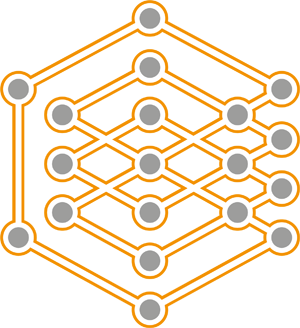
23.10.2024 - 25.10.2024, Zürich
This three-day intermediate level course covers the WHY, WHAT and HOW of Systems Architecting by teaching the following:
Understanding the WHY: The need for employing architectures to help cope with the overwhelming nature of complexity.
Explaining the WHAT: Architectures provide different system perspectives and are ideal entry points to effectively structure your information.
Introducing HOW: Modelling System Architectures using the COFLP Framework: Contextual/Operational/Functional/Physical/Logical.
- Top-Down modelling of Operations (Missions/Scenarios/Use Cases) yields clarity and allows for re-use of Functions;
- The Functional Architecture elicits Requirements: Functions = Functional RQ; Object Flows = Performance
- The Logical Architecture makes high-level technology and responsibility choices providing the means for identifying Operational & Functional IF
- The Physical Architecture is different in nature, as its elements have to match the Functional Specs which typically happens at the lowest level (bottom-up). They then have to be integrated taking into account all physical constraints concentrating on the optimum (co-)location.
• What is systems architecture and how does it differ from the system design?
• How does it relate to Systems and Holistic Thinking?
• What makes a good architecture: how many architectures do we need?
• What makes up a good architecture so important in the context of complex systems?
• Why are Interfaces such a fundamental concept in Systems Architectures?
• What is the relationship between the Operational Architecture and systems control?
• Can/should we develop the architectures for a system and its Digital Twin together?
• How does it help with decision making for an uncertain development environment?
• Why is it important to develop variants and provide variation points and how do they relate to the interfaces?
• What is a logical and repeatable methodology to develop architectures?
• How can we model the architectures? Do we need MBSE? Do we need tools?
• How can we ensure that the models are consistent and connected?
• Where can one customise the architectures?
• When is an agile approach permissible, when should you take extreme caution?
• How do architectures help developing the system for safety, reliability, availability, maintainability, and inspectability?
• Why is it important to separate the system’s (sometimes called “logical”) from the physical architectures?
• How do all architecture map to the others? Why is mapping a powerful mechanism in developing for complexity?
• What is the timing relationship between the various system (logical) architectures and the physical design?
• What are the main skills of a senior Systems Architect?
Systems Engineers, Lead/Senior Engineers, Systems Analysts and Systems Architects.
Early Bird: 2025 CHF | Regular: 2250 CHF
3 tage

Marco has had many roles in Systems Engineering: Professor at a technical university, and Consultant for and Employee in the development of complex systems. He was the managing director of projectglobe - a boutique consultancy firm specialising in Model Based Systems Engineering (MBSE) and Information Management (IM) to support innovation driven engineering projects. Major customers are the fusion research community, the automotive industry, and 3D laser-welding and robotics companies.
Marco holds a PhD in nuclear engineering and a Masters in Operational Research. In his role as research fellow at Europe's largest fusion laboratory, JET near Oxford, he devised a novel diagnostic system, which earned him a world-wide patent. Marco then worked for the automotive industry managing product development and launch projects for the emerging markets of Eastern Europe and Russia before co-founding projectglobe with the purpose to devise novel methodologies, frameworks and tools that combine MBSE with IM to enable effective innovation and product development.
Together with partners from industry and academia, projectglobe have developed CLOSE - a Closed-Loop MBSE methodology based on robust semantic reference model. This model allows to automatically generate the required engineering artefacts in the correct format for SE teams and domain experts alike. The loop is closed by so-called "Experimentable" Digital Twins that provide in-the-loop feedback for all developers throughout the whole product life cycle. CLOSE runs on projectglobe's fractal data engine and thus allows for unlimited scalability in managing all project information.


